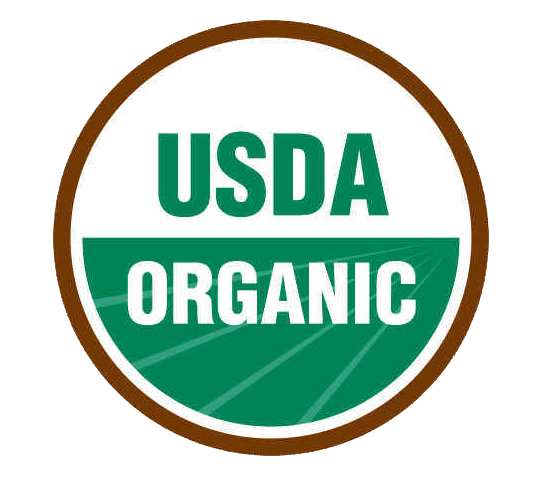
Tuesday, May 14, 2019 - The million-dollar question. “Organic” is a broad term that refers to agricultural products grown without synthetic chemicals (like pesticides and antibiotics) or  genetically modified seeds. The good news is that in the US, farmers can’t play fast and loose with the word. So if a product is labeled organic, that means that the USDA has signed off. Products that are labeled organic can either be certified organic or 100% organic…but we’ll get to those distinctions later.
genetically modified seeds. The good news is that in the US, farmers can’t play fast and loose with the word. So if a product is labeled organic, that means that the USDA has signed off. Products that are labeled organic can either be certified organic or 100% organic…but we’ll get to those distinctions later.
Anything made from plants or animals (including animal products like eggs, dairy, and wool) is eligible for organic certification. This includes all food and beverages (including pet food) as well as flowers and seeds, tobacco, textiles, and other fibers (including cotton fabric and wool), soft toys (if they’re made with the aforementioned textiles), cleaning supplies, skincare products, and makeup.
The Organic Foods Production Act of 1990 established the National Organic Program, which oversees alllll the regulations we’re going to summarize below.
And it turns out the regulations are pretty rigorous, and they begin at the very beginning of a product’s life. For plant-based products, it starts with the land. A farm isn’t eligible for organic certification unless it has been farmed without any of the prohibited chemicals for three years, to ensure that no residual chemicals remain in the soil, or find their way into your certified organic carrots.
The crops themselves can’t be genetically engineered. While many foods advertise their non-GMO status, all certified organic foods are non-GMO. There are also restrictions on what kinds of chemicals can be used in organic farming. Organic farms do still use pesticides, but for the most part the approved pesticides are natural rather than synthetic. For animal products to earn the certification, the animals from which the products are sourced need to be fed an all-organic diet as well as have access to outdoor space year-round, and must be raised without antibiotics.
For products that are made with multiple different potentially organic ingredients, there are different kinds of official certifications. Let’s start with the gold standard: 100% organic. This means all the ingredients in the product are organic. Next, organic. For a product to be considered organic, it has to contain 95% organic ingredients, and its non-organic ingredients can’t be on the National List of Prohibited Substances. Buying organic can definitely cut down on the number of antibiotics and chemicals you ingest (though you could still be ingesting pesticides, so buying organic isn’t necessarily your get-out-of-washing-fruits-and-veggies-free card). And while organic certification isn’t always synonymous with ensuring that livestock are raised humanely, more oversight is certainly better when it comes to animal welfare. That said, claims that organic food is actually healthier haven’t been substantiated.
As to the question of whether organic farming is better for the environment, wellllllll…it’s complicated. The ban on synthetic chemicals is better for local wildlife, and organic methods promote biodiversity and can help prevent soil erosion. Organic farms are also better for farmworkers, because they expose them to less chemicals, and the farms are smaller, which often means better working conditions.
In conclusion, there are few downsides to buying organic, if your budget allows. Particularly for the kind of products you eat and use on your skin every day, it makes sense to consider paying a bit of a premium for organic goods.
Learn More at this Link